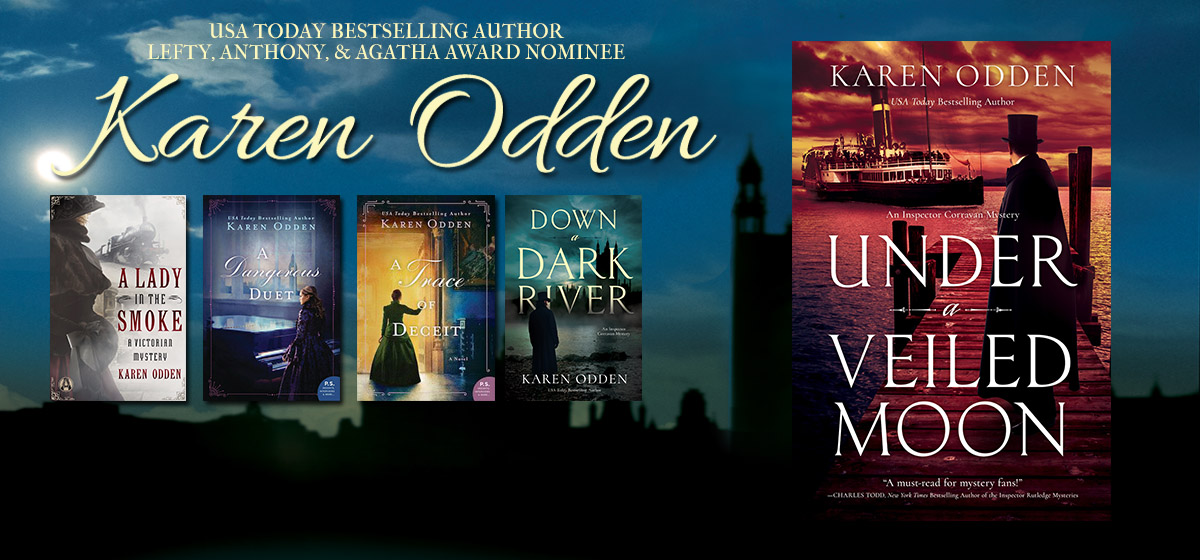 I love best the historical novels that have the feel of the real, and often they describe or represent the objects of daily life, mundane to the characters but unfamiliar to us. A few weeks ago my friend Wendy, who is madly talented at hunting up curious things in thrift stores, gave me this piece of crockery. (The pen is for scale.) She wasn’t sure what it was, she said, but with the brush of gold, and the maker’s mark (“F. Winkle & Co. Byron England”) on the inside, it looked like it came straight out of my book, set in Victorian England, so she wanted me to have it. Maybe it was a serving dish, meant for soup or a stew, she ventured. That night my mother-in-law walked in to my kitchen, saw it on the counter, and gasped: “My! What a beautiful chamber pot!”
I love best the historical novels that have the feel of the real, and often they describe or represent the objects of daily life, mundane to the characters but unfamiliar to us. A few weeks ago my friend Wendy, who is madly talented at hunting up curious things in thrift stores, gave me this piece of crockery. (The pen is for scale.) She wasn’t sure what it was, she said, but with the brush of gold, and the maker’s mark (“F. Winkle & Co. Byron England”) on the inside, it looked like it came straight out of my book, set in Victorian England, so she wanted me to have it. Maybe it was a serving dish, meant for soup or a stew, she ventured. That night my mother-in-law walked in to my kitchen, saw it on the counter, and gasped: “My! What a beautiful chamber pot!”
I have put it in my office, along with a few other items: 19th-century medical books, a hatpin from the 1860s, a cast-iron train engine. Much like the “portkeys” in Harry Potter books—such as the old boot that can transport half a dozen people from a field in England to the World Cup Quidditch match—these objects connect me to my alternate universe. I found myself curious and began to ask my writer friends (on the FB Historical Novel Society page and elsewhere) if they too have an historic object like this that feels like a portkey to their period. I received back a resounding, “Yes!” and some wonderful pictures. Farthings, washboards, a napkin ring from the deck of a WWI naval ship, vanity sets, chess pieces, furniture, parasols; the list went on and on. (A side note: one member told me that chamber pots were also known as “thunder mugs” by pioneers in the Northwest. Isn’t that the best moniker?)
By chance, I just finished Michael Chabon’s Moonglow, which I can already tell will be in my top ten books for the year. Near the end of the book, Michael meets a woman named Sally who knew his grandfather toward the end of his life, after he had been diagnosed with cancer. She attends a book reading in Florida, and Michael and she go out to dinner. He reaches over to light her cigarette with a silver lighter his grandfather was given during WWII by a friend named Aughenbaugh.
“That lighter,” [Sally said.]
“There was a story behind it,” [Michael replied].
“I’m sure. All of his stories were stuck behind something.”
Maybe that is partly why I like the somethings—because they suggest that there is always a story stuck behind them. But it’s also more than that. If I am going to try to imagine a Victorian woman’s life, I like to think I can inch just a bit closer by putting my hands in the same place hers were—as if I could, by touching that handle and hefting the porcelain weight of it, feel what she felt, with both her fingertips and her heart.
If you have a “portkey” to your period that you’d like to share, please post a picture and/or your story below, in comments. I’d love to see!
